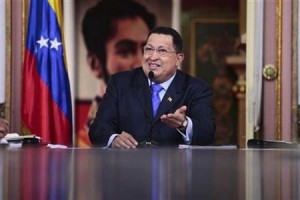UNITED NATIONS — First, the good news. The United States has been re-elected to the UN Human Rights Council along with Germany and Ireland. So too have been South Korea and Japan. Now fasten your seat belts for the rest of the eighteen new selections to the 47 member Geneva-based Council which is chosen by regional groups.
For the African group, the election, or should we say selection, was for five out of five countries; Cote d’Ivoire, Ethiopia, Gabon, Kenya and Sierra Leona. All gained seats unopposed. In the case of Cote d’Ivoire, Ethiopia and Gabon these states have been deemed by human rights groups as authoritarian regimes, thus not qualified to serve.

In the Asian group, a closed slate (pick five out of five) countries offered a mixed bag; South Korea and Japan are free countries and will bring positive additions to the council. But Kazakhstan, Pakistan and the United Arab Emirates remain authoritarian or hybrid regimes who in the opinion of human rights monitors are not qualified for membership.
According to UN Watch, a Geneva-based human rights monitor, “Pakistan fails to meet the minimum standards of a free democracy. The authorities limit criticism in the press and have increased internet censorship.” Kazakhstan, a post-Soviet state, is a classic example of authoritarian rule under longtime leader Nazerbayev.
When it comes to Latin America we see a closed slate of three states; Argentina, Brazil, and Venezuela. According to UN Watch, Venezuela severely restricts freedom of expression, prosecutes government critics, inhibits the activities of human rights organizations, and undermines the independence of the judiciary, thereby creating a chilling effect amongst the general public and media at large.”
As Venezuelan journalist Marcel Granier, general director of Radio Caracas Television the oldest and most watched channel, closed by the government in 2007, stated “The government has closed down 34 radio stations, threatened 200 with closing The Judicial system is subservient to the Executive — the Supreme Court has openly declared loyalty to the President and not to the Constitution.”
He added, “Indeed the Venezuelan President has expressed his admiration and support for some of the world’s worst human rights violators; Vladimir Putin, Fidel Castro, Mahmoud Ahmadinejad and Robert Mugabe, people Chavez has described as “brothers and friends.” Granier questioned how a country without freedom of speech or freedom of the press could enter the Human Rights Council.
Thor Halvorssen, President of the Human Rights Foundation lamented, “The amount of self-censorship that is seen in Venezuela is remarkable.”
Given that current members Cuba, China and Russia must step down for the next session, Venezuela and Pakistan are seen as surrogates.
According to Hillel Neuer, executive director of UN Watch, “Chavez is being elected in a Cuban-style ballot: there’s no competition. This is the product of a pre-cooked political deal done behind closed doors. By choosing Chavez, the U.N. grants legitimacy to a regime led by an autocrat who systematically harasses journalists, judges, human rights activists and student leaders, and is a top supporter of the butchers of Syria and Iran.”
For the Western European and Others group five countries contested three available seats. The United States, Germany and Ireland handily won three year terms. Equally for the Eastern European group, Estonia and Montenegro, both free countries, won places at the table too for the new 2013-2015 membership.
“Pakistan, Venezuela, Kazakhstan, Cote d’Ivoire, Ethiopia, Gabon, and UAE systematically violate the human rights of their own citizens,” said UN Watch’s Hillel Neuer. UN Watch led an international coalition of 40 Members of Parliament and the Human Rights Foundation activists that appealed to U.S./UN Ambassador Susan Rice, the EU, to oppose the bids by Venezuela and Pakistan.
“Regrettably,” stated Neuer, “neither the U.S. nor the EU said a word. By turning a blind eye as human rights violators easily join and subvert the council, leading democracies are complicit in the world body’s moral decline.”
When this correspondent asked Neuer what the U.S. role should be “The U.S. is the most important country at the United Nations and the leader of the free world and has an obligation to act accordingly. The U.S. has done nothing on China, a massive violator of human rights. Eight years ago the U.S. did introduce resolution on China they don’t do so anymore…For example the U.S. used to take on Cuba, now they don’t.”
Neuer stressed, “The narrative that the U.S. is promoting is, that it is all victory and progress, when they are choosing to ignore, and downplay things that continue to happen and subvert human rights. We expect America to speak out forcefully when things are undermined at the UN Human Rights Council and they are not doing so enough.”
John J. Metzler is a U.N. correspondent covering diplomatic and defense issues. He writes weekly for WorldTribune.com.


You must be logged in to post a comment Login